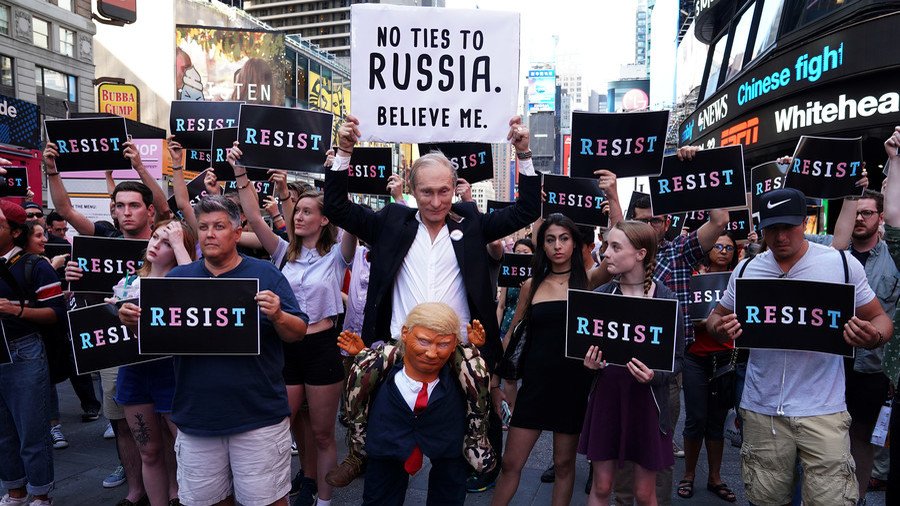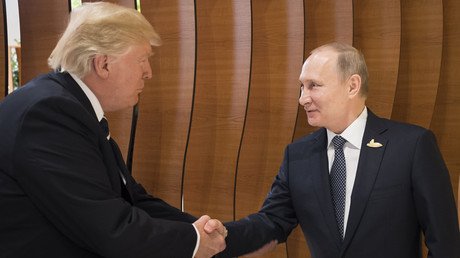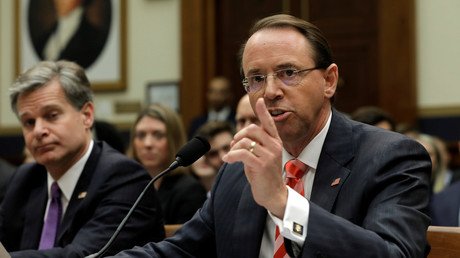Russiagate: DC judge throws out collusion lawsuit against Trump

A Washington DC judge has thrown out a lawsuit alleging the Trump campaign colluded with Russia and Wikileaks to publish hacked emails from the Democratic National Committee in 2016.
The suit, filed by two DNC donors and one former DNC employee, argued that ‘Russian agents’ gained access to the DNC’s networks, and distributed emails in a “deliberate campaign to interfere in the US election and tilt its outcome in favor of Donald Trump.”
It then alleges that the Trump campaign, along with former adviser Roger Stone, worked with Russia and Wikileaks to publish the hacked information. It cites meetings at Trump Tower between Trump campaign staff and a “Kremlin connected” lawyer as proof of the collusion.
US judge dismisses DNC donor, employee lawsuit over @WikiLeaks' 2016 election related publications https://t.co/AjkKDAfofUpic.twitter.com/48FAdL0oez
— WikiLeaks (@wikileaks) July 4, 2018
The donors, Roy Cockrum and Eric Schoenberg, claim that the emails deterred other potential donors from supporting the Democratic party. They also allege that scammers used their personal details to try to commit identity theft and credit fraud.
The DNC employee, Scott Comer, claims that the emails revealed his sexuality, medical information, and other gossip to the world, damaging his reputation with family and friends. After the publication of the emails, he claims he received menacing phone calls, with some calling him a “faggot” and threatening violence.
District Judge Ellen Segal Huvelle dismissed the suit on Tuesday evening, arguing that the Trump campaign was not sufficiently tied to Washington DC, and the suit was therefore outside her jurisdiction. She did not take a position on the suit’s allegations.
"It bears emphasizing that this Court’s ruling is not based on a finding that there was no collusion between defendants and Russia during the 2016 presidential election," she wrote. "This is the wrong forum for plaintiffs’ lawsuit. The Court takes no position on the merits of plaintiffs’ claims."
President Donald Trump and his campaign staff have repeatedly denied charges of conspiring with Russian actors in the runup to the 2016 election. After two years and almost $20 million dollars spent, White House Special Counsel Robert Mueller has thus far failed to find any evidence of collusion from the Trump team. Instead, Mueller has indicted campaign staff on unrelated charges, like former campaign chairman Paul Manafort’s decade-old bank and tax fraud charges.
After a year-long investigation, The House Intelligence Committee published a report in April which also found that there was no Russian collusion in 2016.
Nevertheless, Democrats have not let the specter of collusion slip away. One week before the House Intelligence Committee report was released, the DNC itself filed a multimillion-dollar lawsuit against the Trump campaign, the Russian government, and WikiLeaks.
The suit was described by the Trump campaign as “a last-ditch effort to substantiate the baseless Russian collusion allegations by a nearly-bankrupt Democratic Party still trying to counter the will of the people in the 2016 presidential election.”
A spokesperson at the Russian Foreign Ministry called it “a kind of attempt by the Democrats to justify their defeat.”
Even if the lawsuit was built on solid evidence, the DNC might find it difficult to actually sue Russia, as other nations enjoy immunity from US lawsuits.
Think your friends would be interested? Share this story!















